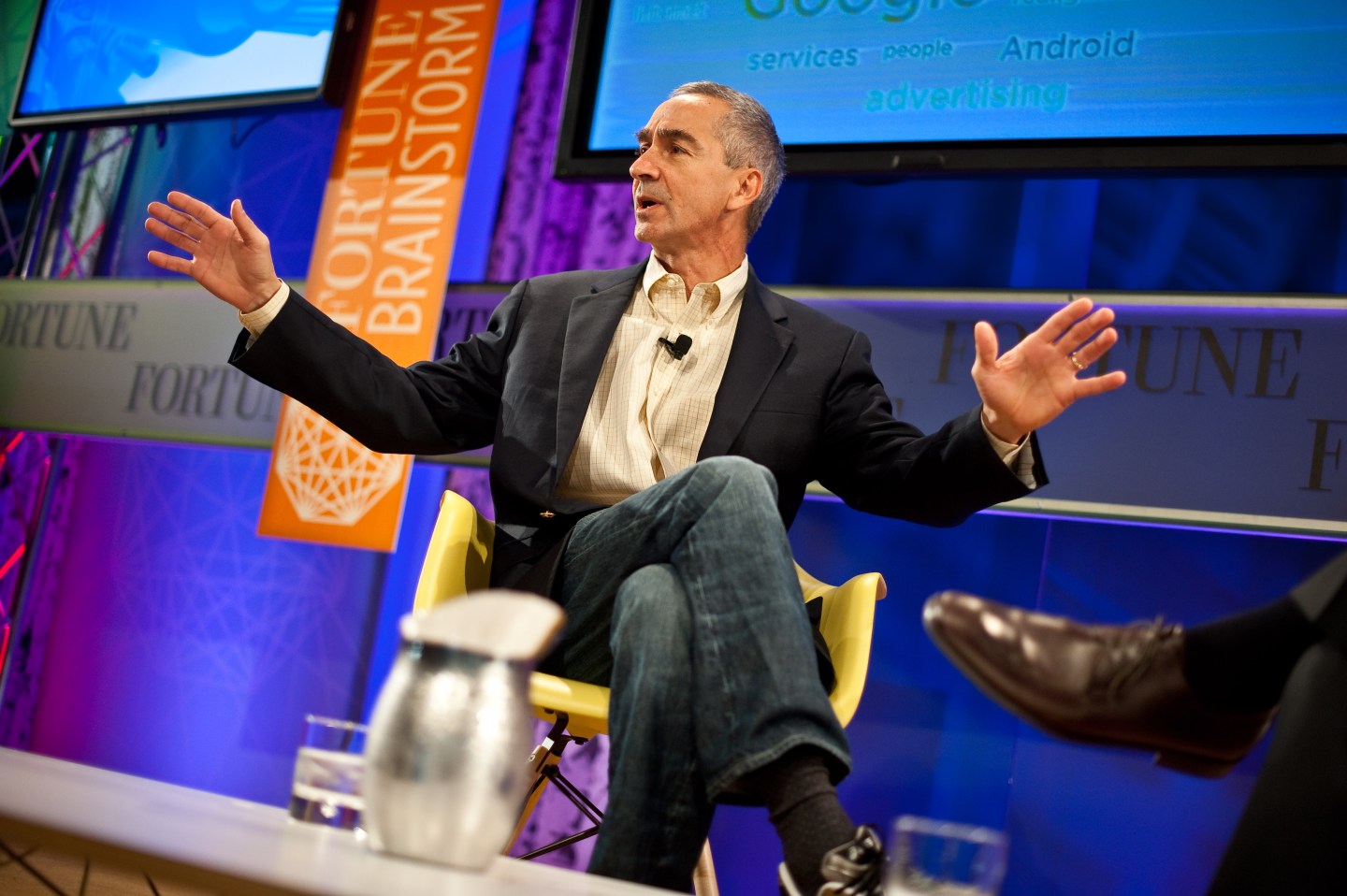At 52 years old, Google CFO Patrick Pichette recently announced that he is retiring to spend more time with his family. Many found this surprising; The New York Times’ headline encapsulated this sentiment by parenthetically noting, “(no, really).”
Now, consider for a moment that Patrick was instead a woman. Gone is the shock of her stepping down to be with her family, since most would expect that she would eventually change her mind and return to work.
Work-life balance is an issue that both men and women face, yet it is more commonly associated with females and so rarely with males. Why is this?
Despite the progress women have made in the U.S. Workforce over the past decades, a recent study I conducted with colleagues Emily Amanatullah and Taeya Howell, finds that many men and women still believe in traditional gender roles and prefer the husband to be the primary breadwinner and the wife the primary family caretaker.
We examined the extent to which people have internalized the progress of women in the workforce, looking beyond shifting social level metrics, such as the fact there are more women than ever in the workforce today, to determine if individuals have embraced the gender changes in society and how their attitudes influence their own preferences and behaviors.
We discovered not much has changed vis-à-vis expectations about what each gender is supposed to do. Although many women will strive to earn as much as possible, they often still prefer their spouses to make more money than them. And the higher a woman’s aspirations for her own wages, the more she prefers a husband who will out-earn her. In complementary fashion, most men prefer that their wives make less than they do. Both genders also expect that the wife will be the one juggling work and home commitments.
We further find that the more someone believes that gender matters in determining someone’s abilities, behaviors, characteristics, etc. (Meaning that gender is deterministic) the more they embrace traditional gender roles. Thus, even if someone doesn’t overtly endorse traditional roles, the more he or she believes gender matters in distinguishing people, the more he or she prefers that men be the primary breadwinners.
Interestingly enough, millennials have similar attitudes, even though some might expect that younger workers would be more gender blind relative to other age groups. And although our national sample shows that some people are more likely to embrace gender role changes than others, we find no systematic differences across various demographic groups. That is, regardless of generation, geographic region or family history, our pattern of results looks the same.
Given the overriding attitudes, I applaud the publicity around Pichette’s choice. Not because he chose family over work (that is obviously an individual choice for everyone, men and women alike) but because the public discourse about his choice makes it just a bit more normal for the next male executive to choose this option. Let us not constrain men solely as breadwinners; fathers are parents, too. The more we loosen our gendered expectations about behavior, the fewer implicit constraints on all of us—increasing our freedom to choose our own (sometimes complex) mix of work and family.
Catherine H. Tinsley is a professor of management at the McDonough School of Business at Georgetown University. She is also executive director of the university’s Women’s Leadership Initiative.












